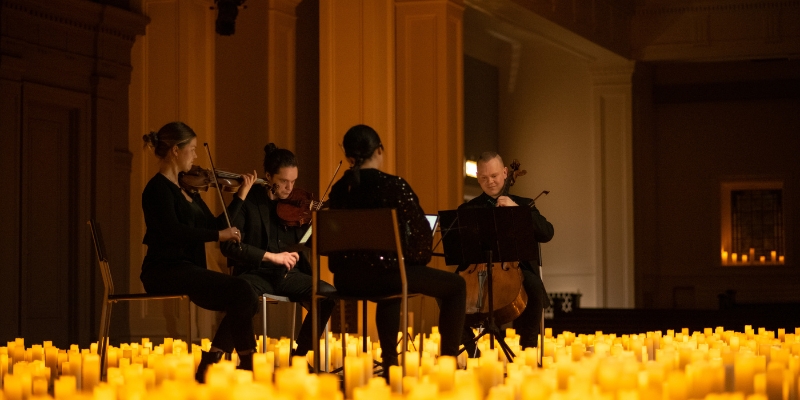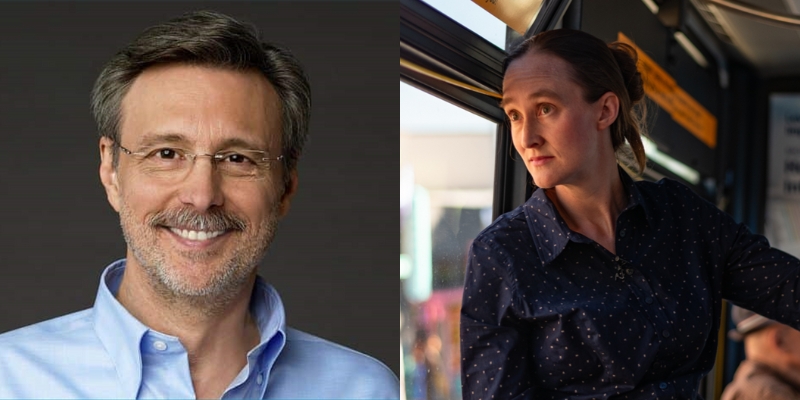Irene Butter is one of the few Holocaust survivors still writing about her experiences. On April 16, 2019 she joins us for a Town Hall conversation about taking action and refusing to be a bystander. You can get tickets to the event here. To give us a preview of her story and her message of hope, she spoke with Town Hall’s Copywriter Alexander Eby.
AE: Can you tell me about what your life was like before the Nazis came to power? Before the camps?
IB: Well, I did have a wonderful early childhood. I lived with my loving parents and my brother who was two years older than I, and I had the great fortune of living with my grandparents in the same house. We were given all kinds of treats and taken on trips—it was truly a wonderful family. But then Hitler came to power and the persecution of the Jews began.
My grandfather owned a bank and my father was his partner, and the bank was taken away from him because Jews could no longer own banks. This left my father unemployed, so he left for Amsterdam to try to find a job. My mother and brother and I followed him a few months later, but my grandparents could not come with us. That was the first separation we experienced. We were in Amsterdam for two years before the Nazis invaded. When the Nazis took over Holland and then everything began to escalate, life for the Jews became very uncertain. There were many restrictions, and then of course the deportation. I think I had six wonderful years of childhood in Berlin and Amsterdam before the Nazis invaded. And from then on times were very difficult.
AE: What were your experiences like in the camps? How did you cope with day-to-day life there?
IB: The first camp we were in was Westerbork, a German concentration camp in Holland. Most people did not stay there long, and things were difficult. We lived in a crowded barracks. The adults were made to work, and for the children there were no schools or libraries, no toys or books. It was complete boredom. Food was limited, and in retrospect it was not all that bad—but only because things got a lot worse.
The worst part of life in Westerbork was every Saturday, when a cattle car train would arrive. The railroad track ran right down the middle of the camp, so wherever you went you had to see it, and it stood there Saturday afternoon and all day Sunday. And then on Monday the barrack leaders turned on all the lights to read the names of the people who were made to leave. Most of those trains went to Auschwitz. Some of us were made to clean the wagons of the trains, and we had a glimpse into what was happening Auschwitz. They found little notes that described the gas ovens, and we learned that most people were gassed upon arrival. It was heartbreaking every week to have to say goodbye to friends or relatives.
Now in our case, my father met a friend in Amsterdam who had just received Ecuadorian passports from a man in Sweden. My father sent a letter to have some of these made for us, but we were deported from our home in Amsterdam before they arrived. The German government had issued an exchange policy by which they kept Jews who had either a foreign nationality or who had passports to one of the allied countries. They kept those Jews because Hitler wanted to exchange them for German citizens who had been caught in other countries when the war started, like a prisoner exchange. After four to six months in Westerbork, a package containing our Ecuadorian passports arrived, and we were no longer at risk of being deported to Auschwitz.
Instead we were sent to a camp called Bergen Belsen, which was referred to as an exchange camp, where Jews were held until the exchanges could take place. We spent an entire year in Bergen Belsen, and conditions were much worse. The adults were subjected to long days of slave labor, six and a half days of work. And we were all made to stand in a big square once a day to be counted for roll call, sometimes for hours at a time. Food rations were minimal, not enough for anyone to survive. Hygiene was deplorable and there were many deaths from disease epidemics and malnutrition. And there was punishment. There was brutality. You had to learn to be able to cope with death, to tolerate death. There were dead people all around you. Every morning I woke up surrounded by dead bodies. It was a truly fearful situation. Everything was uncertain.
AE: What are your thoughts about the situation at the American border, specifically the separation of children from their families?
IB: Heartbreaking. That’s all I can say—I have nightmares about it because I myself was separated from my family. When we were finally included in one of the exchanges, we were put on a train from Bergen Belsen to Switzerland. The second night on the train, my father died from malnourishment and from being badly beaten, and my mother was also very sick. When we arrived in Switzerland my mother and brother were hospitalized, but I was not allowed to stay with them. Switzerland was not accepting any more refugees, so I was sent to a refugee camp in Northern Africa. I was separated from my family not only by cities, not only by country, but by continent.
The war had not yet ended, and for several months I didn’t even know if my mother and brother were still alive. When I finally learned that they were recovering, still nothing was done to reunite me with my mother and brother until we came to the United States. We were separated for 18 months, and I have never forgotten the trauma that comes from being separated from your family. It’s almost unbelievable that this is happening today, and I am very proud of the people who are working to interfere with this process of family separation.
AE: What would you recommend for people who want to take action and avoid being bystanders at a time like this?
IB: It is such an important message for young people, and I’ve been talking in schools for more than 35 years about never being a bystander. I think we all have choices to make, and if you have certain values you need to act on them. When you see injustice and evil you need to interfere in any way you can. Seek help for people who are being injured, line up support, and refuse to be enemies. There is a lot of hatred being promoted at target groups these days, and it’s so destructive. We’re told that people are our enemies when we’ve never met them, or we’ve never even seen them. Refusing to be an enemy to those people is very important because it means opening up to people who are different. To look them in the eyes and listen to their stories. When you do that, you find that the differences between people are far smaller than the similarities that we all have as human beings.

Join us on April 16, 2019 and sit in for Irene Butter’s courageous firsthand account of one of the most harrowing chapters of human history.

